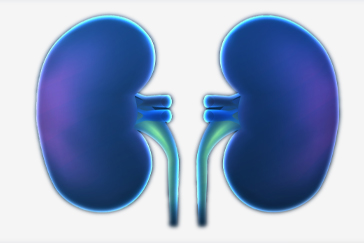 Book Appt.
Book Appt.
 Call Now
Call Now


Over time, high blood pressure can lead to a chronic kidney disease called hypertensive nephrosclerosis. Structural and functional changes in the kidney's glomeruli, interstitial tissue, and blood vessels result in decreased blood flow, scarring, and loss of kidney function. Chronic kidney disease (CKD) or, in more extreme situations, end-stage renal disease (ESRD) can eventually develop from this. In this blog, we will study the pathogenesis, risk factors, clinical aspects, diagnosis, complications, and therapy of hypertensive nephrosclerosis.
Pathophysiology
The kidneys are highly vascular organs that require an appropriate blood supply to operate properly. Chronic hypertension causes excessive pressure on the walls of small blood arteries (arterioles) in the kidneys. Over time, this results in:
Risk Factors
Clinical Features
Hypertensive nephrosclerosis frequently advances silently in the early stages, making early detection difficult. Symptoms commonly occur in advanced disease and include:
Diagnosis
Imaging scans, laboratory testing, and clinical history are all used to identify hypertensive nephrosclerosis. The following are the main diagnostic steps:
Management
The treatment of hypertensive nephrosclerosis focuses on lowering blood pressure, decreasing kidney damage, and managing consequences. Blood pressure control, lifestyle adjustments, CKD complications management, nephrotoxicity avoidance, and improved treatments are all important measures.
Prognosis
The progression of hypertensive nephrosclerosis is dependent on blood pressure regulation and comorbidities. Early intervention and medication adherence can help to decrease illness progression and improve outcomes. However, in severe cases, ESRD is unavoidable, necessitating renal replacement therapy.
Complications
If untreated or poorly managed, hypertensive nephrosclerosis can cause a variety of complications, including chronic kidney disease (CKD), end-stage renal disease (ESRD), cardiovascular complications, proteinuria-related complications, anemia, electrolyte imbalances, mineral and bone disorders, hypertensive retinopathy, an increased risk of infection, and uremic syndrome. Effective blood pressure control and early intervention are critical for avoiding or postponing these consequences.
Prevention
Preventing hypertensive nephrosclerosis involves preemptive measures:
Conclusion
Hypertensive nephrosclerosis is a major public health concern, as it causes chronic kidney disease and end-stage renal failure. While the problem is mostly treatable and managed with good blood pressure control and lifestyle adjustments, delay in recognition can cause irreparable damage to the kidneys. Increasing awareness about the impact of hypertension on kidney function, encouraging regular tests, and adherence to treatment protocols are important to reduce the disease burden. For information, visit SHALBY Sanar International Hospitals in Gurugram.
SHALBY Sanar International Hospitals provides extensive medical procedures backed up with our state-of-the-art technology and a team of highly qualified & experienced clinical experts.

Patient from Indonesia gets Kidney Transplant | SHALBY Sanar Interntional Hospitals

Patient from Indonesia gets Kidney Transplant | SHALBY Sanar Interntional Hospitals

Successful Kidney Transplant of a patient by Dr Amit Kumar

Successful Live Renal Allograft Transplant: Mr. Zaid's Journey to Recovery by Dr Amit Kumar Yadav

Life Renewed: Mr. Evans Elieza Aveva's Remarkable Kidney Transplant Journey

A successful Kidney Transplant gives Mr. Tache from Ethiopia, a new beginning

Successful story of kidney transplant I #kidneytransplant #patient testimonial
Our doctors pen down their research findings and experiences from time to time. Their words provide deep insight into the latest techniques, technologies and other advancements in healthcare. It provides expert answers to all kinds of health questions for real-life issues.
VIEW ALL




Since the day of its foundation, SHALBY Sanar International Hospitals is committed to provide comprehensive healthcare services. It regularly organizes awareness programs in its premises and encourages outdoor healthcare activities and camps with an intent to put focus on preventive healthcare.
VIEW ALL